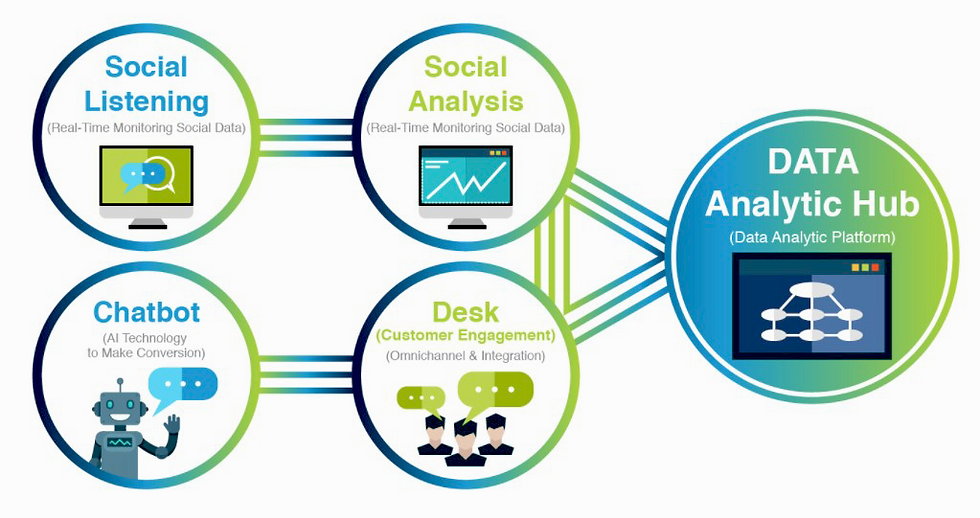- Mar 14, 2022
Establishing a branch office can be a quick and cost-effective way for foreign businesses looking to explore the Malaysian market.
Operations and characteristics of branch offices in Malaysia
Introduced in 2016, the Malaysian Companies Act allows foreign organizations to set up branch offices in Malaysia by registering through the Companies Commission of Malaysia (SSM). Unlike a representative office, a Malaysian branch office can act independently and engage in legitimate profit-making activities.
However, the branch office is not viewed as a separate legal entity from the foreign parent company, and thus the legal obligations, liabilities, debts, as well as all the contracts the branch office enters into, shall be enforceable against the foreign parent company. Moreover, as a sub-division of the parent company, any management decisions undertaken by the branch office must be approved by the parent company.
The branch office is only taxed on income in Malaysia and is also subject to double taxation agreements Malaysia is a party to, an advantage for foreign businesses who are new to the market.
What are the requirements for establishing a branch office in Malaysia?
As the branch office would be seen as an extension of the parent organization, several legal requirements must be met:
The branch office must use the same brand and name as its parent organization;
Branch offices must perform the same business activities as parent organizations;
As a result of the control a parent organization has over its branch office, the office is therefore considered a non-resident entity in Malaysia and will not be authorized for certain tax exemptions and incentives otherwise reserved for local organizations; and
The branch office must appoint a branch agent who is a Malaysian resident and this individual will also be legally bound to the branch office in the case of any legal breaches.
What is the registration process for establishing a branch office in Malaysia?
The registration process for establishing a branch office in Malaysia is as follows.
Name approval
The organization must propose a name to the SSM system at a fee of 50 ringgit (US$11.94) The name must be the same as the foreign parent company.
Required documentation
Within 30 days of the name approval, the following information must be provided to the SSM:
Name, identification, nationality, and place of residence of all shareholders and employees within Malaysia;
List of shareholders from organization’s place of origin;
If the foreign organization has share capital, the details of class and number of shares in the organization’s place of origin;
Certified copy of the certificate of incorporation/registration of foreign organization; and
Certified copy of the memorandum and articles of association or another constitutional certificate.
All documents must be submitted in either Malay or English
How much are the registration fees?
In the event a foreign organization does not prescribe any share capital, a flat rate of RM70,000 (US$16,718) shall be paid to SSM.
However, in the event share capital is issued, the fees are as follows:

What other entity types are available for foreign investors in Malaysia?
Private limited company
Establishing a private limited company, also known as a Sendirian Berhad (Sdn Bhd), is the most common type of business entity for foreign businesses in Malaysia.
The main advantage of an Sdn Bhd is that it can be 100 percent foreign-owned, relatively quick to set up, and are eligible for various financial and non-financial incentives, such as tax allowances.
Unlike the branch office, a Malaysian private limited company has limited liability, and so any debts accrued by the entity are limited to the amount that was invested by the shareholders. Importantly, the private limited company is a separate legal entity, and so can continue if there is a change in directors and shareholders.
Representative office
Another option for foreign investors is to establish a representative office (RO), which is the fastest and most cost-effective way to establish a legal entity in Malaysia. This entity is ideal for businesses still determining the local market opportunities.
However, the RO is prohibited from earning any revenue and its activities are limited to those market research, information gathering, and developing contacts in Malaysia. A company can establish an RO for two years, although this can be extended under specific circumstances. For trade associations and government entities, the RO duration is five years.
Malaysia’s attractiveness for foreign investors
Malaysia’s pro-business policies such as tax incentives, skilled workforce, well-maintained infrastructure, and a deep financial sector (Malaysia is home to Asia’s third-largest bond market) have contributed to the country’s attractiveness to foreign investors.
For instance, despite the pandemic, the country was the top emerging destination for greenfield investments in Southeast Asia, totaling US$24.3 billion, more than double Vietnam’s tally of US$9.9 billion.
Further, Malaysia announced several multi-billion dollar projects as the country continues on course to be a manufacturing hub of high-end products in Asia. US chipmaker Intel announced plans to invest US$7 billion to expand its facilities in the state of Penang, while Chinese solar module manufacturer Risen Energy will invest US$10 billion.
Source from: ASEAN Briefing (Written by Timothy Standen)




